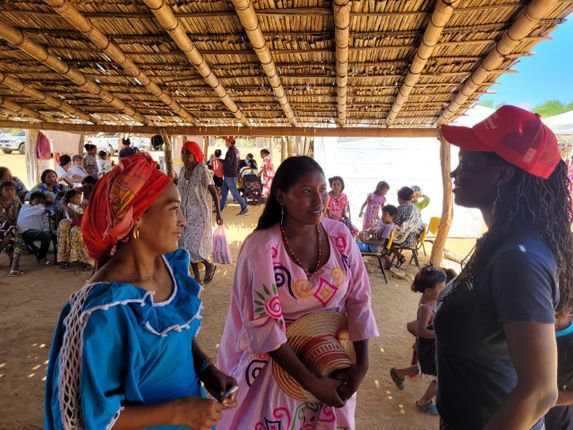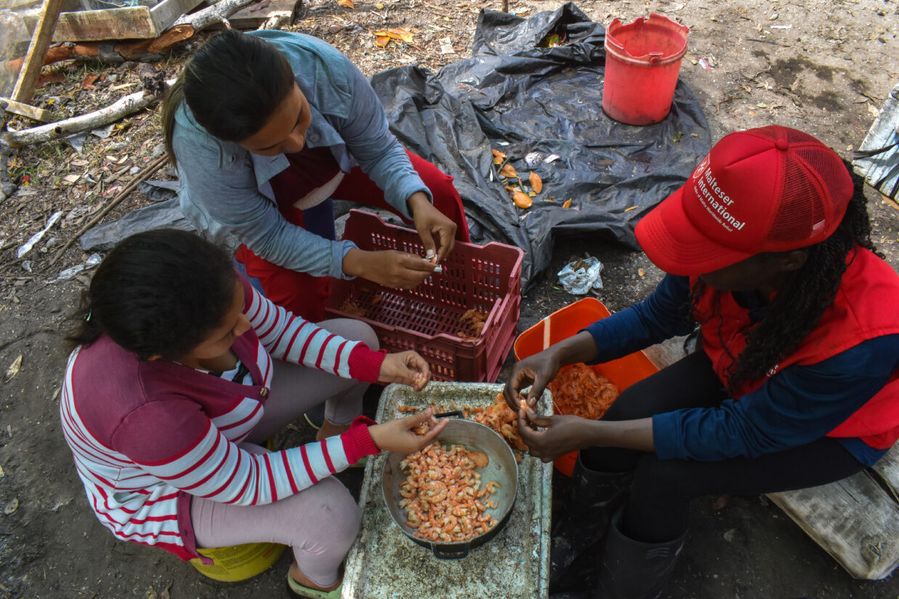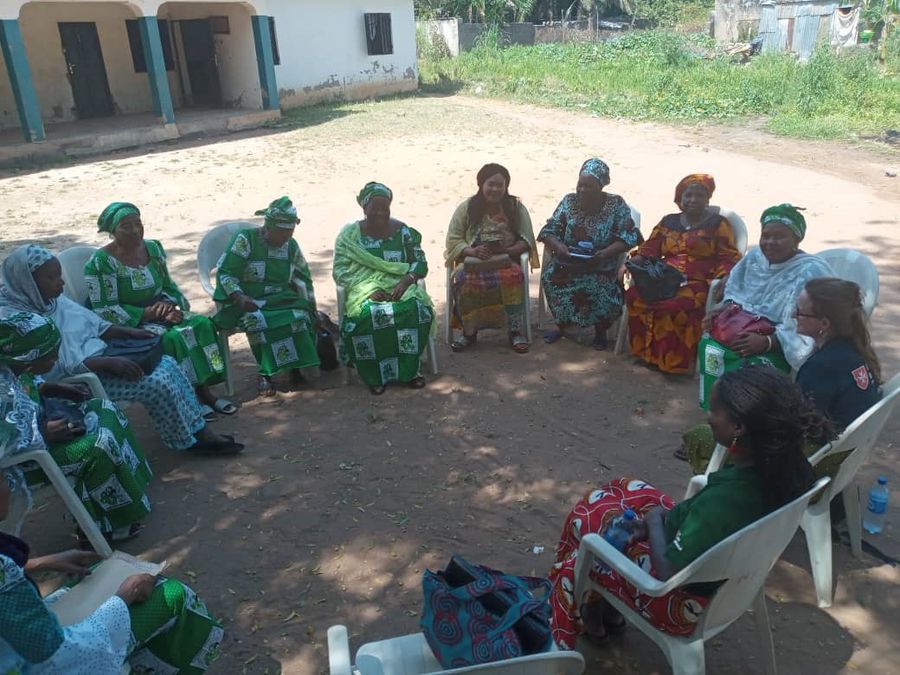
Women in need: Interview with Global Protection Advisor Helen Hayford

Why is it so important to focus on women and girls in our work, i.e. in humanitarian aid and development cooperation?
Women are not treated equally. They are more often poor, they have lower-paying jobs, less agricultural property, they experience gender-based violence more often than men. We notice this unequal treatment and discrimination in the Global North, but it is even more common in the Global South, especially when resources are scarce, people are on the run, they feel the consequences of climate change or live in conflict situations. We must also counteract this injustice in our work. That is why we at Malteser International (MI) pay particular attention to the needs, obstacles and capacities of women and girls as part of our global humanitarian aid and development cooperation activities.
What are the indicators of this inequality?
The inequalities are very diverse. They affect income, education, access to healthcare and, for example, the ability to safely bring a child into the world without endangering one's own life or that of the child.
According to UN statistics, 70% of all women worldwide are at risk of poverty, with one in 10 women living in extreme poverty. If this trend continues, more than 340 million women and girls will be living below the poverty line by 2030, i.e. they will have to get by on less than €2 a day. Overall, many women have poor conditions for access to and control over economic resources. Worldwide, only 15% of all women have access to agricultural property.
In seven out of ten households, women and girls between the ages of 10-15 are responsible for fetching water due to a lack of water supply in the household. The distances to the wells are often long, which in turn means that girls cannot go to school and therefore receive less education than boys.

Why is it important for our healthcare facilities to focus on women?
Many women are exposed to risks during childbirth because they do not have access to adequate health care. According to the World Health Organization (WHO), a woman dies every two minutes, either in childbirth or during pregnancy.
In many of the projects we currently have in 35 countries around the world, we therefore place a special focus on the health of women and mothers. In Thailand, for example, we care for refugee women and mothers in a camp on the border with Myanmar. There they are cared for during preganancy, childbirth and after birth. They also receive training on what a healthy diet looks like and their children are also cared for in our health facility.
How can the construction of a well help to make women's lives easier?
Let me give you an example of why it is important to create gender-equitable access to a humane and inclusive water, sanitation and hygiene supply. In many countries of the Global South, especially in crisis situations, women often have no direct access to sanitary facilities. Wells and latrines are usually far away. Especially at night, women and girls are at risk of being assaulted while walking. What are we doing about it? In South Sudan, as a result of our projects in the villages around the town of Wau, women are involved on an equal footing in the decision-making processes of the community-based water committees. They thus help to integrate the specific concerns of women and girls (e.g. menstruation management) into water use in an equitable manner. Taking the needs of women and girls into account, wells are built that are located in highly visible and central locations and close to residential areas. Regulatory agreements are made in the community to reduce threats to the safety and dignity of women and girls.
How can equal rights strengthen the economic development of a society?
Improved economic participation of women paves the way for the removal of gender-specific barriers, combats poverty and strengthens the economic development of a society. This means that when women are better integrated into the labor market, the whole of society benefits - including men.
One example from our work: in Haiti, women fish sellers in the village of Nippes are supported in marketing and preserving their products. We provide the women with the technical equipment and also provide them with the necessary expertise in business management. This not only promotes financial independence, but also strengthens the economic potential of these women in their community.
Our interview with Helen Hayford.
What are the consequences of gender-based violence?
One in three women worldwide is a survivor of gender-based violence. In other words, she has been subjected to violence because she is a woman. The assaults result in health problems for the girls and women, such as anxiety disorders, depression, sexually transmitted infections, etc. In addition, they are often stigmatized, shunned by their families and communities and are therefore exposed to further psychological violence even after the act of violence. Up to 70% of all women experience domestic violence.
In Nigeria (Borno State in the north-east of the country), we have set up so-called safe spaces for women who have experienced violence. There, women and girls who have experienced gender-based violence receive psychosocial support. As part of this project, the existing barriers that have prevented full participation in society are broken down. Women are given the opportunity to take part in income-generating training measures and thus strengthen their economic livelihood in a sustainable and dignified manner.
We are convinced that development cooperation and humanitarian aid can only be effective if the specific needs of women and girls are taken into account and targeted measures are taken to strengthen the equal participation of women and girls.








